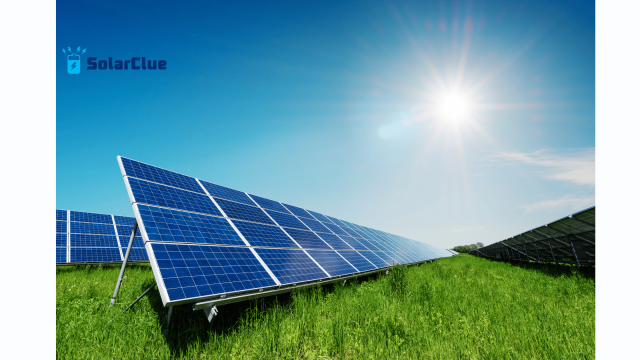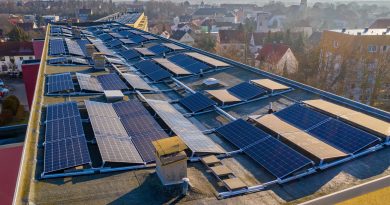What Other Factors Affect the Efficiency of a Solar Panel System?
When switching to solar power, understanding how to get the most from your investment is crucial. Many people focus solely on panel quality, but there are multiple factors that influence the overall performance of a solar power system. Whether you’re considering installing the best solar panel for home, or simply curious about how solar energy works, this guide covers the critical elements impacting solar panel efficiency. Key Factors That Affect Solar Panel Efficiency are:
Table of Contents
- 1 1. Angle and Orientation of Solar Panels
- 2 2. Shading and Obstructions
- 3 3. Temperature and Climate Conditions
- 4 4. Type and Quality of Solar Panels
- 5 5. Inverter Efficiency
- 6 6. Dust, Dirt, and Maintenance
- 7 7. Installation Quality
- 8 8. System Age and Degradation Rate
- 9 9. System Design and Configuration
- 10 10. Monitoring and Performance Tracking
- 11 11. Government Policies and Incentives
- 12 12. Grid Connection Quality
- 13 13. Roof Type and Material
- 14 14. Battery Storage Efficiency (for Hybrid Systems)
- 15 15. Geographic Location and Sunlight Availability
- 16 Conclusion
- 17 FAQs
1. Angle and Orientation of Solar Panels
The positioning of your solar panels plays a significant role in their ability to capture sunlight. Ideally, panels should face true south in the northern hemisphere to receive the most direct sunlight throughout the day. The tilt angle should match your latitude for year-round performance. Misalignment can result in reduced output and inefficiency.
2. Shading and Obstructions
Even the best solar panel can suffer a surprising drop in output if it’s not clean. So, do solar panels really lose efficiency when dirty can’t perform well if it’s shaded. Trees, chimneys, or nearby buildings can block sunlight and dramatically lower energy generation. Shading just a small part of one panel can impact the whole array if the system is not equipped with bypass diodes or microinverters.
3. Temperature and Climate Conditions
High temperatures can actually decrease solar panel efficiency. While solar panels need sunlight, excessive heat causes electrical resistance that reduces performance. On the other hand, cold climates can improve efficiency, provided there’s enough sunlight. Always consider local weather patterns when planning your solar power system.
4. Type and Quality of Solar Panels
All panels are not created equal. Monocrystalline panels are known for high efficiency and better space utilization, making them ideal as the best solar panel for home use. Polycrystalline panels are cheaper but less efficient, and thin-film panels are lightweight but have the lowest efficiency among the three.
5. Inverter Efficiency
The inverter converts DC power from the solar panel to usable AC power for your home. If the inverter is of low quality or poorly matched to the system size, energy loss can occur. High-efficiency inverters ensure better performance and higher returns on your solar investment.
6. Dust, Dirt, and Maintenance
Regular cleaning and maintenance are essential. A layer of dust or bird droppings can significantly reduce the sunlight absorption capacity of your solar panels. Periodic inspection and cleaning can help maintain optimal performance.
7. Installation Quality
Even the best solar panel will underperform if it’s poorly installed. Make sure you hire certified professionals who follow proper guidelines and safety standards. Incorrect wiring, loose connections, or poor panel mounting can lead to system inefficiency or even hazards.
8. System Age and Degradation Rate
Over time, all solar panels degrade, losing efficiency at an average rate of 0.5% to 1% per year. However, quality panels have slower degradation and retain higher efficiency longer. This makes it important to select the best solar panel with a strong warranty and proven longevity.
9. System Design and Configuration

An optimally designed system includes not just panels, but also appropriate inverters, batteries (if off-grid), and wiring. Poor design can cause mismatched voltages, bottlenecks, and other issues that reduce overall solar energy output.
10. Monitoring and Performance Tracking
Modern systems include monitoring tools that provide real-time data on energy production. Keeping track of this data can help identify underperformance early and take corrective action, thereby maintaining high solar panel efficiency.
11. Government Policies and Incentives
While not a technical factor, government incentives such as tax credits or net metering can indirectly affect efficiency by improving return on investment and enabling more efficient system upgrades.
12. Grid Connection Quality
For on-grid systems, the quality of your connection to the utility grid can affect how efficiently you export or use your generated solar power. Voltage fluctuations or limitations in grid capacity can sometimes affect how much energy you can actually utilize or sell back.
13. Roof Type and Material
The type of roof on which solar panels are installed can impact performance. Some materials like metal and tiles offer better support and heat dissipation compared to asphalt shingles. The roof’s condition and pitch should also support optimal panel placement.
14. Battery Storage Efficiency (for Hybrid Systems)
If your solar power system includes battery storage, its efficiency also matters. Low-efficiency batteries can lose a significant portion of stored solar energy, reducing the overall benefit of your system.
15. Geographic Location and Sunlight Availability
Last but not least, your location determines how much sunlight your solar panel for home receives annually. Areas with higher solar irradiance naturally yield better performance and energy output.
Conclusion
These are the Key Factors That Affect Solar Panel Efficiency. So boosting solar panel efficiency is about more than just picking the best solar panel. It involves careful consideration of your environment, hardware, and system design. By addressing these factors, you can ensure that your solar power system delivers the highest possible return on investment and contributes to a greener planet.
For more tips, insights, and top-rated solar solutions, visit SolarClue or explore our expert guides on blog.solarclue.com today!
FAQs
1. How do I know if my solar panels are performing efficiently?
Use monitoring tools to track energy output and compare it to expected levels based on your system specifications and local conditions.
2. Does temperature affect solar panel efficiency?
Yes, higher temperatures can reduce efficiency due to increased electrical resistance.
3. Is cleaning solar panels regularly necessary?
Absolutely. Dust, bird droppings, and debris can block sunlight and reduce output.
4. What is the most efficient type of solar panel?
Monocrystalline panels are generally considered the most efficient for residential use.
5. Can I improve the efficiency of an existing solar system?
Yes, by upgrading inverters, improving panel angles, reducing shading, and regular maintenance.


